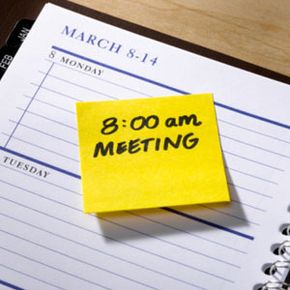Do you find yourself wondering where the day went when you go to bed each night? If so, it may be time to get organized. Perhaps 24 hours seems like a long time, but when you factor in work, sleep, commuting and family, your day probably starts to look a lot shorter. The few free hours left over can easily get filled up with unplanned activities, such as running an extra errand or surfing cable.
Consider keeping notes over several days about how you spend your time. Pay attention to any patterns. For example, do you surf the Internet for half an hour when you get home each day? Did you intend to spend this time winding down, or were you distracted from what you really wanted to do?
Advertisement
Once you've figured out how your time is spent, you can figure out how to maximize it. You'll have to set aside time for important tasks and devote your attention to them completely in order to finish them.
When you make the effort to organize each day before it begins, it can become easier to knock out your to-do list. Knowing where your time goes and what your priorities are will be the key, both in the short term and long term. If you have something you know needs to be completed next month, planning ahead and being prepared will leave you with a sense of accomplishment and, ideally, a little free time to spend as you wish.
After you've begun to organize your day, you'll realize that many of the techniques that apply to organizing your work day also apply to home life, too. You may be scheduling meetings during the daytime hours and children's athletics on the weekends, but the methods remain the same. In this article, we'll look at what to do when you have scheduling conflicts and examine some tools to help you stay on track. Up first, discover ways you can prioritize your to-do list.
Advertisement


